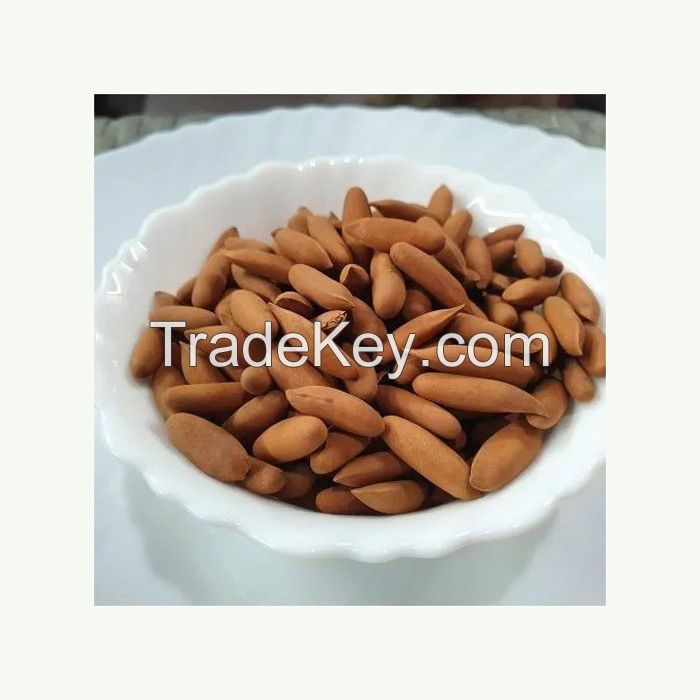
FOB Price
Get Latest Price220 ~ 260 / Ton
|Minimum Order
Place of Origin:
-
Price for Minimum Order:
Minimum Order Quantity:
2 Ton
Packaging Detail:
As a Customers' Requirement
Delivery Time:
10 to 20 days
Supplying Ability:
10000 Ton per Month
Payment Type:
T/T, Western Union, Money Gram, PayPal
Canada
Pine nuts, also known as pinon nuts or pignoli, are the edible seeds harvested from the cones of various species of pine trees. Here are some key points about pine nuts:
Appearance: Pine nuts are small, elongated seeds with a teardrop shape. They have a light beige to ivory color and a soft texture when raw.
Flavor and Texture: Pine nuts have a delicate, buttery flavor with a slightly sweet and nutty undertone. They have a tender texture and can be eaten raw or toasted to enhance their flavor and crunchiness.
Culinary Uses: Pine nuts are a versatile ingredient used in a variety of culinary dishes around the world. They are commonly used in Mediterranean, Middle Eastern, and Asian cuisines. Pine nuts are often added to salads, pasta dishes, pesto sauce, baked goods, desserts, and savory dishes such as pilafs and stuffing. They can also be ground into a paste to make pine nut butter or used as a topping for dishes.
Nutritional Profile: Pine nuts are nutrient-dense and rich in healthy fats, protein, fiber, vitamins, and minerals. They are particularly high in monounsaturated and polyunsaturated fats, which are beneficial for heart health. Pine nuts are also a good source of antioxidants, including vitamin E and manganese, which help protect cells from damage and support overall health.
Harvesting: Pine nuts are harvested from the cones of certain species of pine trees, such as the stone pine (Pinus pinea) in the Mediterranean region, the Korean pine (Pinus koraiensis) in Asia, and the pinyon pine (Pinus edulis) in North America. The seeds are extracted from the cones by hand or with special equipment and then dried to remove excess moisture.
Cost: Pine nuts are considered a gourmet ingredient and can be relatively expensive compared to other nuts and seeds. This is partly due to the labor-intensive process of harvesting and shelling the seeds, as well as their limited availability in certain regions.
Storage: Pine nuts should be stored in an airtight container in a cool, dry place away from heat and light to prevent them from becoming rancid. They can also be stored in the refrigerator or freezer for longer shelf life.
